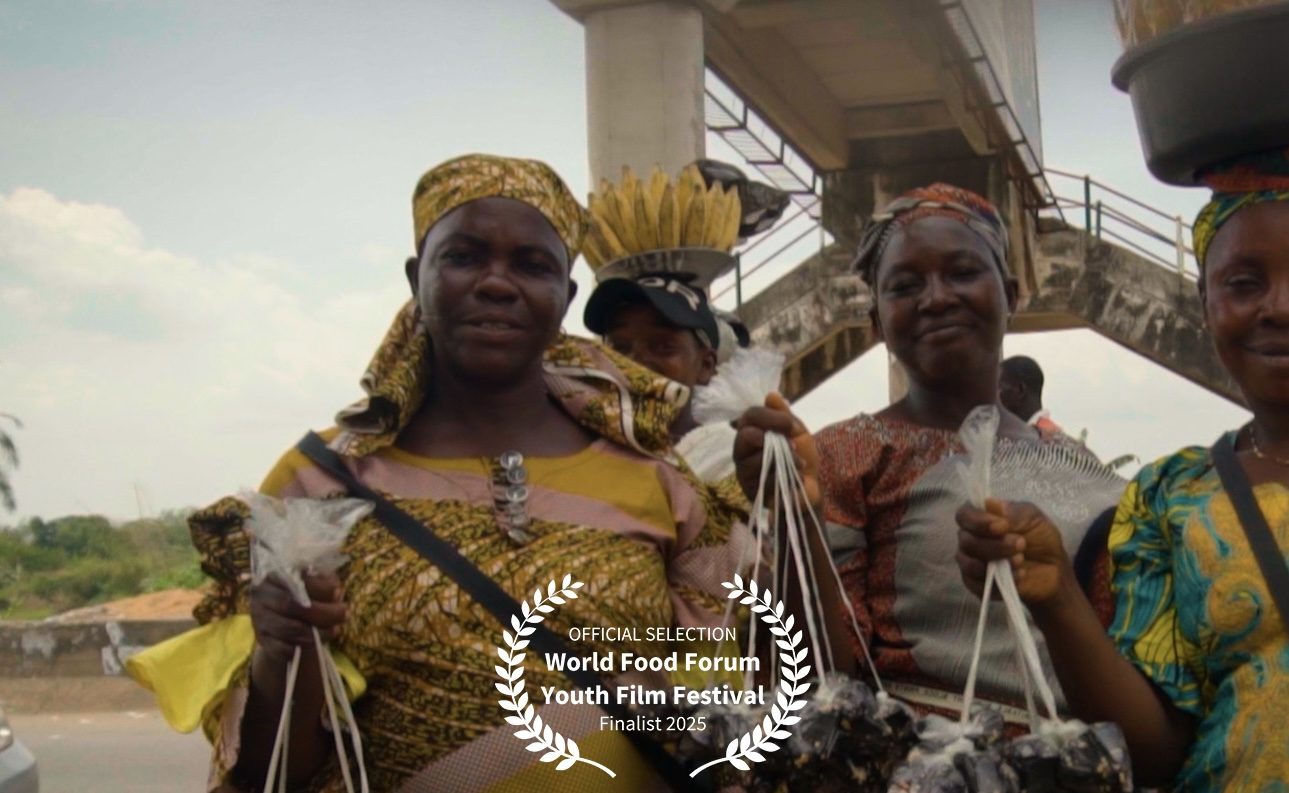What Dodo Ikire ultimately captures, perhaps unintentionally at first, is how deeply entrenched women are in sustaining Nigeria’s food culture, even as they remain excluded from the broader conversations on agricultural innovation and food security.
By Joseph Jonathan
Every once in a while, a film comes along that restores faith in the power of small stories. The kind that begins in local markets, in the slow rhythm of hands at work, in the overlooked corners where survival meets tradition.
Dodo Ikire, directed by Abdulafiz Opeyemi Shittu, is one such story. The short documentary does not strive for grandeur; it builds its quiet strength from the earthy simplicity of its subject — a beloved Yoruba snack — and from the women who have, for generations, sustained not just the delicacy but the economies and families tethered to it.
At first glance, Dodo Ikire appears to be a straightforward exploration of a food process — the peeling, frying, and selling of banana fritters. But beneath its surface lies an act of cultural reclamation. The film begins as an attempt to correct a common misconception — that dodo-ikire is made from rotten bananas — and evolves into something larger: a meditation on labour, gender, and the unseen women who sustain Nigeria’s agrifood systems.

Shittu’s camera lingers where attention rarely falls: on women whose stories are often reduced to archetypes of domesticity. In Dodo Ikire, these women are no longer background figures to a patriarchal economy; they are its pulse. One of them, Akintoye Fasilat, recounts that she has been in the trade for two decades, building a house and educating her children through the modest profit of her work. This is not a story of charity or pity; it is one of entrepreneurship, agency, and quiet revolution.
It is significant that Shittu only realised the documentary’s gendered dimension after its completion. That accident of discovery speaks volumes about how normalised women’s invisible labour has become. What Dodo Ikire ultimately captures — perhaps unintentionally at first — is how deeply entrenched women are in sustaining Nigeria’s food culture, even as they remain excluded from the broader conversations on agricultural innovation and food security.
By centring these women, Dodo Ikire joins a small but growing list of African documentaries that treat local economies as both cultural and political landscapes. In the tradition of Safi Faye’s Kaddu Beykat (1975), Shittu situates work and sustenance as forms of heritage. Through his lens, we see that these women are archivists as much as they are cooks, custodians of a tradition that has fed generations without recognition.
The documentary’s inclusion and eventual award nomination at the 2025 World Food Forum (WFF) Youth Film Festival is not just a personal victory for its filmmaker; it is an institutional acknowledgement that small, community-rooted narratives matter.
The festival — an initiative of the Food and Agriculture Organisation of the United Nations — serves as a platform for young filmmakers using cinema to interrogate global food systems and propose equitable alternatives. In this context, Dodo Ikire’s selection represents something symbolic: a reclamation of narrative agency for African food producers and artisans whose work has too often been framed through the lens of poverty rather than pride.

In a world obsessed with industrial food production and imported aesthetics of “fine dining”, Dodo Ikire reminds us that culture and economy can coexist in the hum of a roadside fryer. The film’s modest cinematography — occasionally unsteady, occasionally raw — mirrors the texture of its subject: imperfect but authentic. Its strength lies not in technical polish but in its observational patience, its insistence on looking closely at women whose skill and resilience have built entire micro-economies from overripe bananas.
There’s also a larger conversation here about documentation itself. Nigeria’s food heritage, like much of its oral tradition, suffers from neglect — a lack of archival consciousness. Shittu’s decision to film Dodo Ikire is thus a form of counter-documentation. By tracing the production process, he records not only a culinary practice but a fragment of social history.
The film’s opening note acknowledging the disputed origin of the delicacy between Ikire and Apomu towns (of Osun State) becomes a quiet metaphor for the fluidity of cultural ownership: how stories of origin evolve, migrate, and sometimes get lost without the intervention of storytellers like him.
Yet, beyond its cultural resonance, Dodo Ikire also gestures toward the economic invisibility of women in agrifood systems. Across Nigeria and much of Africa, women form the backbone of smallholder farming and food processing but remain peripheral in decision-making and policy recognition. The women in Shittu’s film are microcosms of this imbalance: industrious, inventive, yet often vulnerable to economic precarity. Their enterprise is not framed as empowerment rhetoric; it is the raw reality of survival.
What makes Dodo Ikire compelling, then, is how it situates itself at the intersection of memory and livelihood. It is a documentary that feeds both mind and conscience, asking us to see local foods not merely as culinary delights but as vessels of identity, gender politics, and socio-economic continuity. In chronicling the making of a snack, Shittu manages to craft a portrait of womanhood, one defined not by subservience but by creativity and grit.

As the credits roll, one senses that Dodo Ikire’s greatest achievement is not in its nomination or global recognition but in how it reaffirms cinema’s role as a tool for cultural preservation. It is a reminder that the most powerful stories are not those told about people but those told with them — stories that give back dignity where society has long withdrawn it.
In celebrating Dodo Ikire, the World Food Forum Youth Film Festival did more than honour a filmmaker; it spotlighted an entire community of women who have, through the simple art of frying bananas, kept a culture alive. And in a media landscape obsessed with spectacle, Shittu’s film stands as an eloquent rebuttal. Proof that sometimes, the most radical thing a filmmaker can do is to look homeward, to find beauty in the familiar, and to tell the truth of it with tenderness.
Rating: 3/5
Joseph Jonathan is a historian who seeks to understand how film shapes our cultural identity as a people. He believes that history is more about the future than the past. When he’s not writing about film, you can catch him listening to music or discussing politics. He tweets @Chukwu2big.



